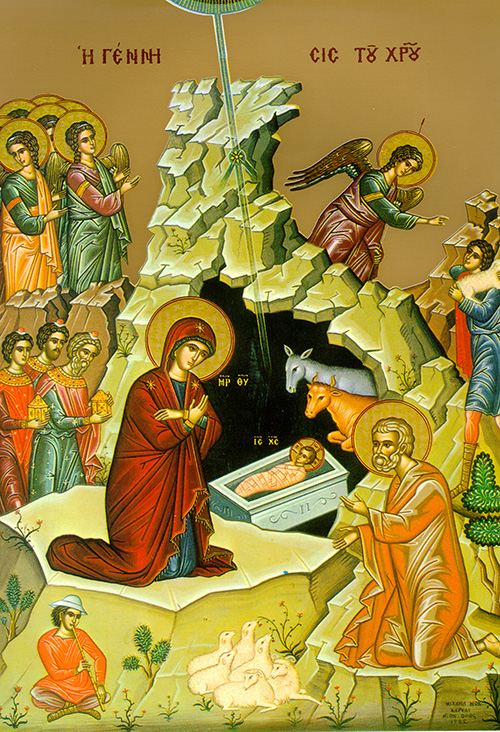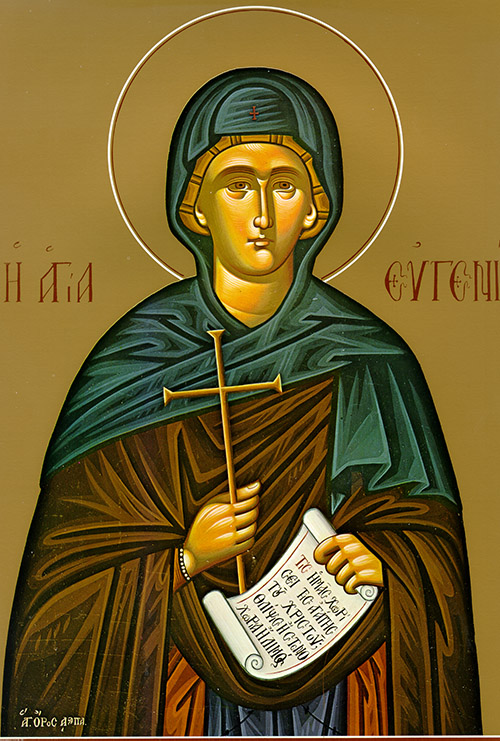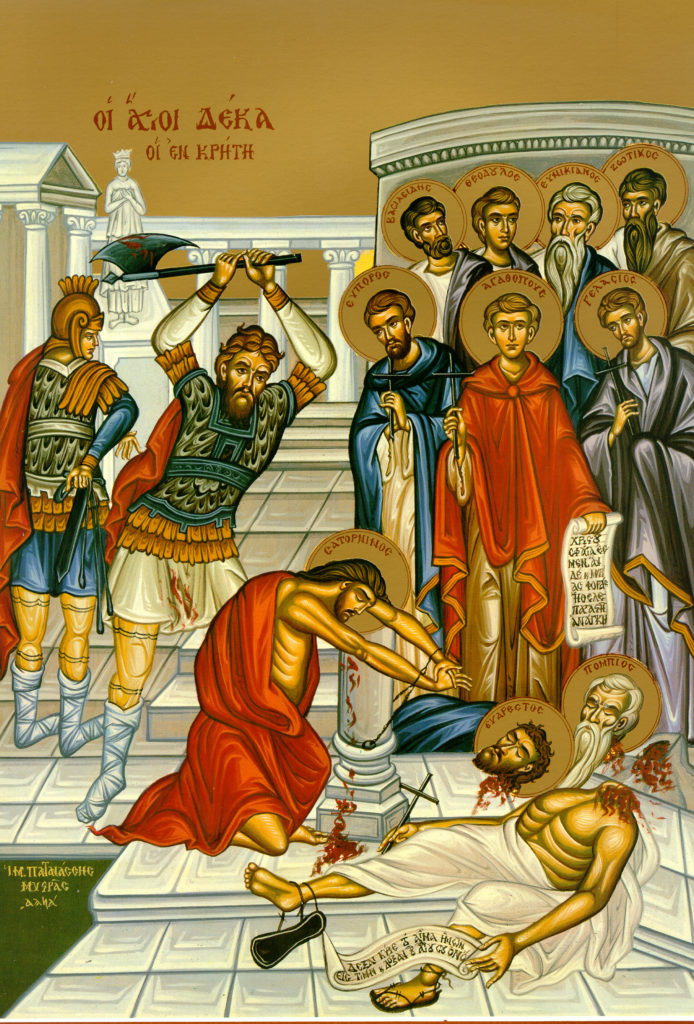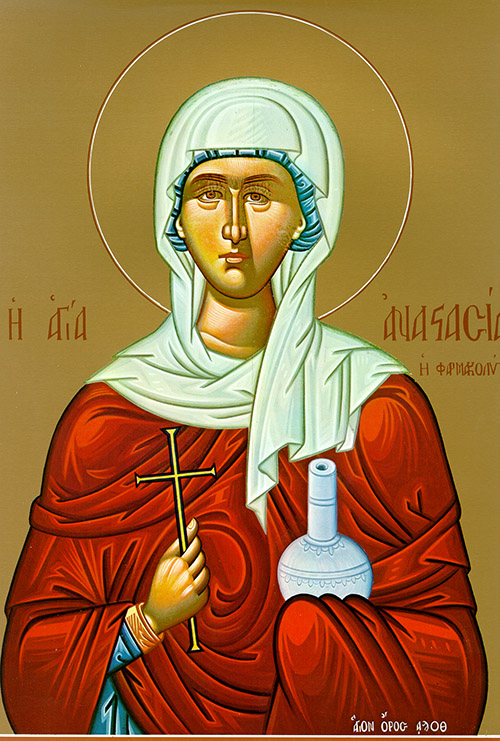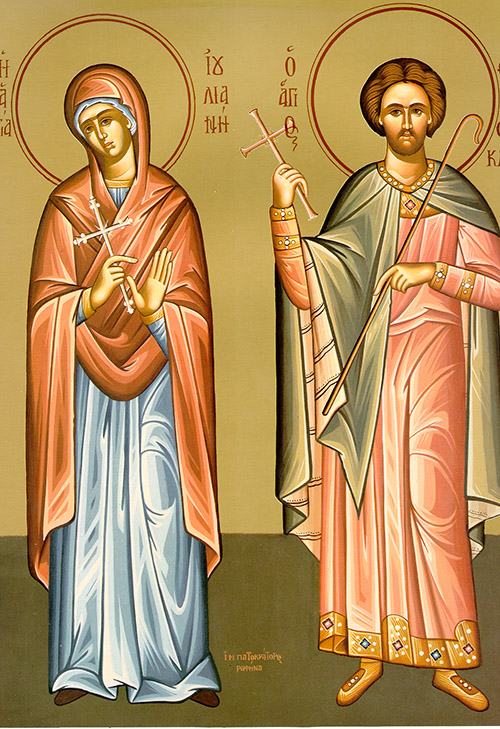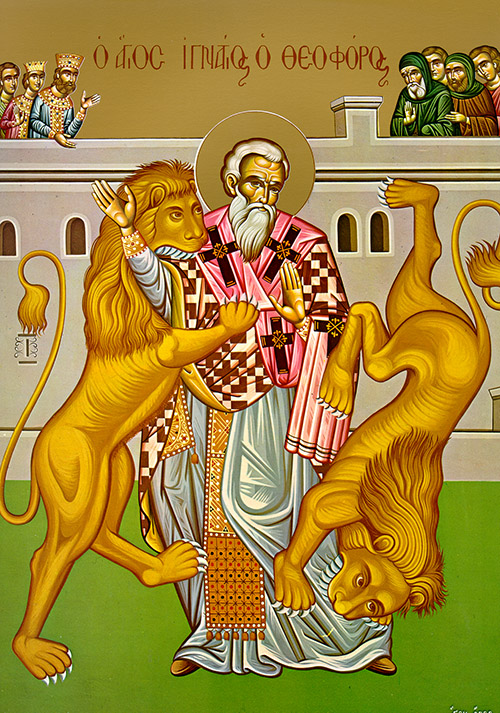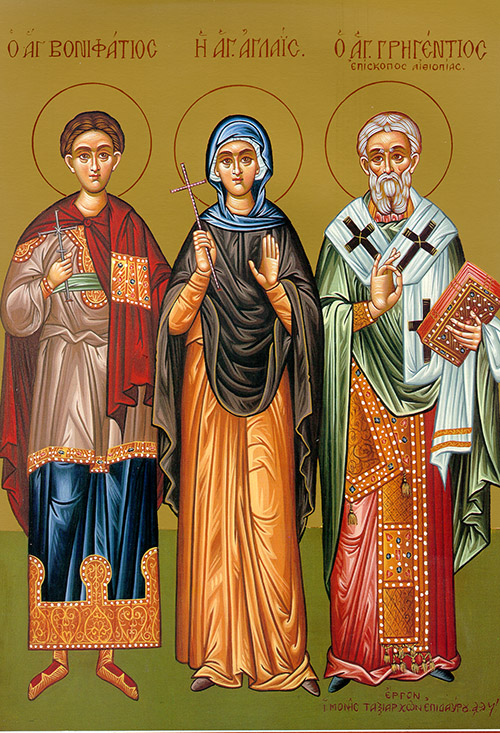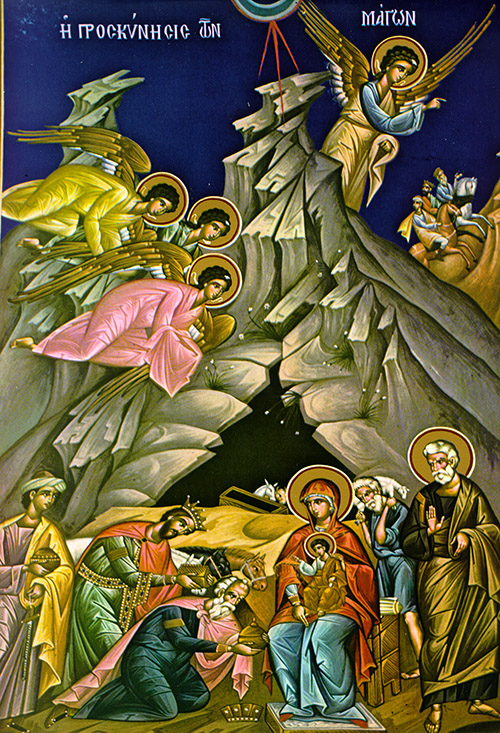

The synaxis of the Theotokos: On the second day of the Christmas feast, the Church gives glory and praise to the most holy Theotokos, who bore our Lord, God, and Savior, Jesus Christ.
The holy martyr Euthymius, Bishop of Sardis in Lydia, was forced into exile on account of his veneration of the Holy Images by the iconoclast Emperor Michael. Finally, when Theophilus was emperor, Euthymius was brutally beaten with leather thongs, and he fulfilled his martyrdom in 840.
Troparion – Synaxis
Your birth, O Christ our God, has shed upon the world the light of knowledge; for through it those who worshiped the stars have learned from a star to worship You, the Sun of Justice, and to know You, the Dawn from on High. Glory to You, O Lord!
Troparion – Holy Men
Joseph, proclaim the wonders you have seen to David, the forefather of God: the Virgin gives birth; you have given glory with the shepherds and worshiped with the wise men; you have been instructed by the angel. Ask Christ our God to save our souls.
Kontakion – Synaxis
Before the morning star, He was born of the Father without a mother; today, on earth, He has become man from you without a father. A star announces the good news to the Wise Men. The angels join with the shepherds to sing the glory of your marvelous childbearing, O Woman full of grace.
Kontakion – Holy Men
Today the godly David is filled with joy; Joseph offers hymns of praise with James. Rejoicing, they take up the garland of relationship with Christ. They sing praise to Him whose birth on earth defies description and they cry out: O merciful Lord, save those who honor You.
Epistle
Hebrews 2: 11-18
Brothers and sisters: He who consecrates and those who are consecrated have one and the same Father. Therefore he is not ashamed to call them brothers, saying, “I will announce your name to my brothers, I will sing your praise in the midst of the assembly”; and he says, “I will put my trust in him”; and again, “Here am I, and the children of God has given me!” Now, since the children are men of blood and flesh, Jesus likewise had a full share in ours, that by his death he might rob the devil, the prince of death, of his power, and free those who through fear of death had been slaves their whole life long. Surely he did not come to help angels, but rather the children of Abraham; therefore he had to become like his brothers in every way, that he might be a merciful and faithful high priest before God on their behalf, to expiate the sins of the people. Since he was himself tested through what he had suffered, he is able to help those who are tempted.
Gospel
Matthew 2: 13-23
At that time, after the astrologers from the east had left, the angel of the Lord suddenly appeared in a dream to Joseph with the command: “Get up, take the child and his mother, and flee to Egypt. Stay there until I tell you otherwise. Herod is searching for the child to destroy him.” Joseph got up and took the child and his mother and left that night for Egypt. He stayed there until the death of Herod, to fulfill what the Lord has said through the prophet: “Out of Egypt I have called my son.”
Once Herod realized that he had been deceived by the astrologers, he became furious. He ordered the massacre of all the boys two years old and under in Bethlehem and its environs, making his calculations on the basis of the date he had learned from the astrologers. What was said through Jeremiah the prophet was fulfilled: “A cry was heard at Ramah, sobbing and loud lamentation: Rachel bewailing her children; no comfort for her, since they are no more.”
But after Herod’s death, the angel of the Lord appeared in a dream to Joseph in Egypt with the command: “Get up, take the child and his mother, and set out for the land of Israel. Those who had designs on the life of the child are dead.” Joseph got up, took the child and his mother, and returned to the land of Israel. He heard, however, that Archelaus had succeeded his father Herod as king of Judea, and he was afraid to go back there. Instead, because of a warning he received in a dream, Joseph went to the region of Galilee. There he settled in a town called Nazareth. In this way what was said through the prophets was fulfilled: “He shall be called a Nazorean.”
Icon courtesy of Jack Figel, Eastern Christian Publications – ecpubs.com


